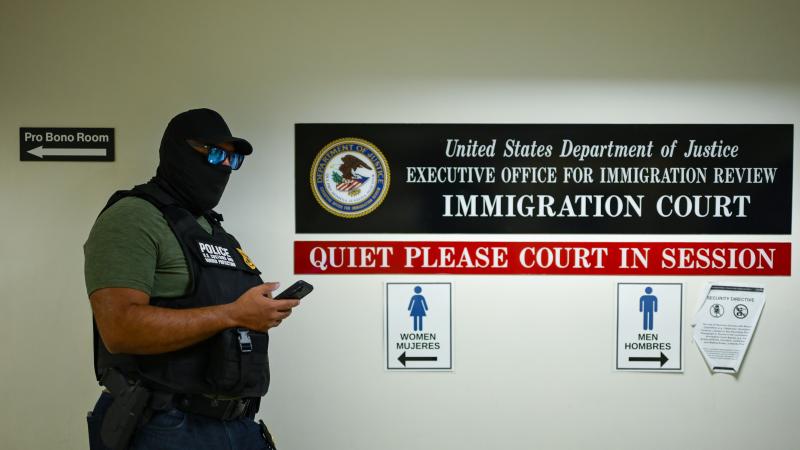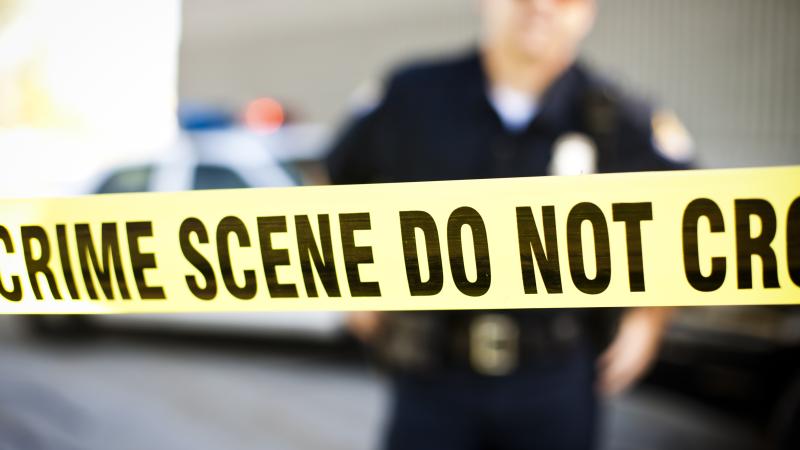Cities across America would benefit from Trump's D.C.-style takeover
The Home Rule Act makes it possible for the use of federal troops to save D.C. It remains to be seen whether and how the Posse Comitatus laws can be managed to rescue other cities.
When President Donald Trump announced on Monday a federal takeover of Washington and its D.C. Metropolitan Police Department, he did so after a wave of crime, particularly youth crime, that had plagued the city sporadically for decades. D.C. is not an isolated case, however.
Dozens of Democrat-led cities across the country are experiencing the same epidemic of crime, and Trump hinted that other cities may undergo the same makeover to clean up their streets, reduce crime, and bring those formerly thriving metropolises to their shining glory.
Trump told the press on Monday, “We’re not going to lose our cities over this. This will go further." The federal takeover starts with D.C. but Trump said New York City could be next, followed by Chicago, Los Angeles, Baltimore and Oakland. Oakland ranks as the second-most dangerous city in the U.S. and Baltimore ranks fourth. While Los Angeles, New York City, and Chicago did not currently make the list, pockets of those cities are far more dangerous than those currently ranked, such as the south side of Chicago. South Los Angeles, in municipalities like Inglewood and Compton, is notorious for gang-related crime.
Posse Comitatus a legal barrier?
Democrats decried the move and cited recent data that ostensibly showed a slight dip in crime. However, a D.C. Metro police commander, Michael Pullman, was suspended just months ago in May after being arrested for allegedly manipulating crime statistics. The suspension follows an internal investigation prompted by discrepancies in reported crime data.
Nonetheless, 18 U.S. Code § 1385, known as the "Posse Comitatus Act" may be difficult to overcome. That law makes it illegal to use any part of the Army, the Navy, the Marine Corps, the Air Force, or the Space Force as a posse comitatus or otherwise to execute the law. Unlike the nation's capital under the Home Rule Act, Trump lacks the unique federal authority over state jurisdictions that he has in D.C., unless specific legal exceptions like the Insurrection Act allow it.
The Congressional Research Service has listed several of these legal exceptions. In 1996, Congress added authority for military assistance, including the provision of personnel and equipment, for the enforcement of laws prohibiting chemical and biological weapons of mass destruction. In 2015, Congress added authority for military assistance to the Department of Justice in the case of situations involving bombings of places of public use, government facilities, public transportation systems, and infrastructure facilities, including the use of ordinance disposal units. This authority, however, does not permit the military to make arrests, directly participate in searches or seizures, or collect intelligence for law enforcement purposes.
Congress could pass legislation, such as an amendment to the Posse Comitatus Act or invoke the Insurrection Act, to explicitly authorize the use of federal military forces for domestic law enforcement in cities beyond D.C., thereby enabling Trump's federalization plans. MS-13 and the Sinaloa Cartel were designated as "terrorist" organizations under the Trump administration's first day of his second term in January 2025, and may give some leeway to fighting violent crime.
The National Center for Drug Abuse Statistics reported in 2015 that 46% of prisoners in federal prison were there for drug-related crimes.
-
Chicago
Trump has one of his premier real estate properties in downtown Chicago, Trump International Hotel and Tower. Situated right off an artery of Lake Michigan, Trump has spoken often about the extreme levels of crime plaguing the city that have persisted since the days of Al Capone and "Bugs" Moran.
In 2023, Chicago recorded 617 homicides, 23% higher than the 500 homicides in 2019. The homicide rate was roughly 23.3 per 100,000 residents, the second highest among major U.S. cities. A federal law-enforcement intervention in Chicago would likely see a robust influx of federal agents targeting violent crime and gang networks, partnering closely with local authorities.
Agencies such as the FBI, DEA and ATF might set up operational hubs in high-risk areas like Englewood or Garfield Park, focusing on curbing the illegal gun trade and drug trafficking. While the Department of Justice would oversee coordination with the Chicago Police Department to share intelligence, potential friction over control could emerge.
-
Los Angeles
The City of Angels endures similar crime issues. Los Angeles reported 328 homicides in 2023, a rate of roughly 8.6 per 100,000 residents. This year-to-date, 158 homicides have occurred. To cure Los Angeles, a federal law-enforcement operation would likely concentrate on dismantling gang operations, human trafficking rings, and drug smuggling networks across the city’s over 500 square miles.
Federal agents from agencies like Homeland Security Investigations and the U.S. Marshals could establish task forces in areas such as South Los Angeles or the San Gabriel Valley, targeting entrenched criminal activity that most frequently involves sub-gangs of transnational criminal organizations like MS-13 and the Sinaloa Cartel.
Collaboration with the Los Angeles Police Department and county sheriff’s office would be essential to navigate the city’s diverse communities and jurisdictional complexities. Engaging residents and building trust would likely require significant time and dedication due to Los Angeles’ experience with civil unrest, like the recent ICE raids and the infamous LA Riots in 1992.
-
New York
A federal law-enforcement surge in New York City would likely focus on countering terrorism, organized crime, and cyberthreats, reflecting the city’s role as a global economic powerhouse. However, recent crime numbers have damaged the city's reputation as a tourist hub, with 386 homicides in 2023 and 188 in 2025 thus far.
Agencies like the FBI, Secret Service and Department of Homeland Security might deploy to boroughs such as Manhattan or Brooklyn, working to disrupt financial crimes or international smuggling networks. While partnering with the NYPD to leverage the city’s advanced surveillance systems, federal operations could face resistance from local leaders protective of their autonomy. Community outreach in diverse areas like Queens or the Bronx could ease those concerns, but an historical distrust of law enforcement could prompt calls for intense oversight.













